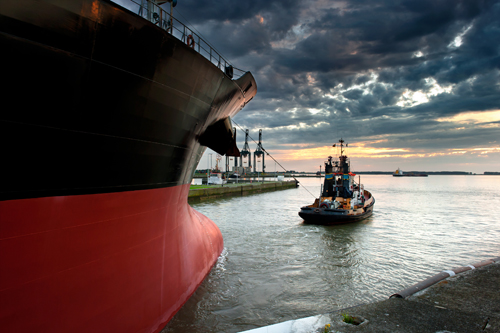
Lying in close proximity to Gelibolu, along the coast of the Dardanelles, one will find Gelibolu Shipyard. A present day reminder of the historic links this part of Europe has to the maritime sector, Gelibolu Shipyard is a family owned newbuilding yard founded in 1975. One half of Aksoy Shipping Group, it specialises in the building of small-to-medium sized sea and river going vessels for its ship chartering sister company, Ali Riza Aksoy Denizcilik.
Gelibolu is located at the base of the peninsula named after the town, which juts out from the Thracian mainland and extends for about 50 kilometres in a northeast-southwest direction between the Straits of Dardanelles and the Gulf of Saros, an inlet of Aegean Sea. From Gelibolu eastwards, the Straits widen into the Sea of Marmara.
The site of the earliest Ottoman shipyards and navy headquarters, Gelibolu has always been a seafaring town, once serving as the capital of the Ottoman province that occupied most of the Aegean islands, all the way down to Crete. Today, due to its strategic location, Gelibolu is a garrison town, with a substantial part of its surface area consisting of military camps
One of the facets of the business that Gelibolu Shipyard benefits most from is its relationship with Aksoy Shipping Group. This Turkish charterer has achieved wide success in the local market through its dedication to reliability, quality, and innovation. As a result of this relationship activity at the shipyard has remained at a steady pace and this has given the company’s engineers the time to construct the modern vessels it has become so well known for.
Spread over a total area of approximately 50,000 square metres, the shipyard’s facilities include three slipways of 30 metres by 130 metres and approximately 8,000 square metres of enclosed construction workshops with various cutting, bending, welding and shaping machines. From its facilities the shipyard's engineers are capable of constructing vessels of up 150 metres in length and with a beam of approximately 30 metres.
Gelibolu Shipyard’s experienced and loyal workforce has a strong track record of building and delivering turn-key vessels of all types, from small work-boats to fully automated ocean-going vessels of the highest standards. Examples of this work includes dry cargo carriers, product and chemical tankers, container ships, supply boats, tugs, accommodation barges, ferries and landing craft. Each and every member of the shipyard’s workforce has helped the company fashion for itself a reputation for excellence when it comes to the quality of its products, its ability to deliver on schedule and for the way it always strives to keep the promises it makes to its customers.
Gelibolu Shipyard understandably takes great pride in the high quality of its ships and their components. A perfect example of this would be the REMAS, a 75-metre offshore diving support vessel featuring diesel-electric propulsion, Dynamic Positioning Class II and an environmentally friendly design, which is now owned and managed by leading offshore contractor, Micoperi. The vessel has been specifically crafted for accessing and operating in the Caspian Sea and also possesses a hull that has been designed for river passage, with shallow draught and four point mooring capabilities.
The future of Gelibolu Shipyard, like any other yard or associated business, will depend heavily upon the status of the chartering market internationally and the levels of activity that it experiences over the coming months and years. While there is clearly something of an oversaturation of vessels in certain sectors of the maritime industry, including those in which Gelibolu Shipyard specialises in, it is the company’s belief that the flexibility it possesses will allow it to adjust accordingly to service those sectors of the market where demand remains stable or strong.
The sector where increased demand is confidently predicted to rise in the short to medium term is the offshore sector. This is because of several factors, not least of all the continued resilience of oil and gas prices, the new discoveries being made in this field and the surge in offshore wind farm developments in countries pushing for greater sources of renewable energy.
Each of the above developments offers a company like Gelibolu Shipyard, with its hard-earned reputation for excellence and quality, fresh opportunities for growth and thus opens up the possibility for an exciting future.
This exciting future is in further evidenced in the fact that the company’s order book today finds itself in an increasingly healthy state. With increased traffic entering the yard and a growing demand for its services, Gelibolu Shipyard looks set to ride this wave of prosperity through the rest of 2014 and beyond.
Written by Will Daynes, research by Peter Rowlston
DOWNLOAD
 Gelibolu-Europe-M&S-Jun14-Bro-s.pdf
Gelibolu-Europe-M&S-Jun14-Bro-s.pdf













